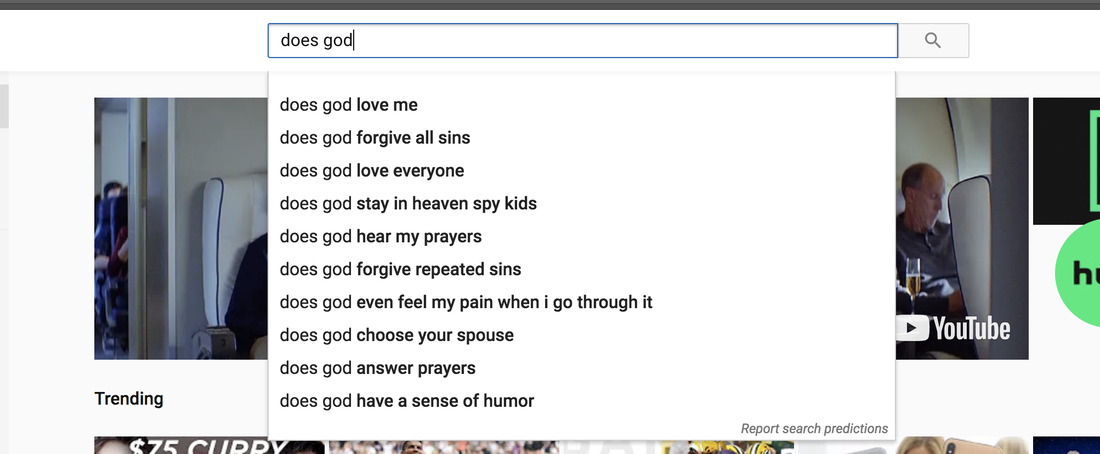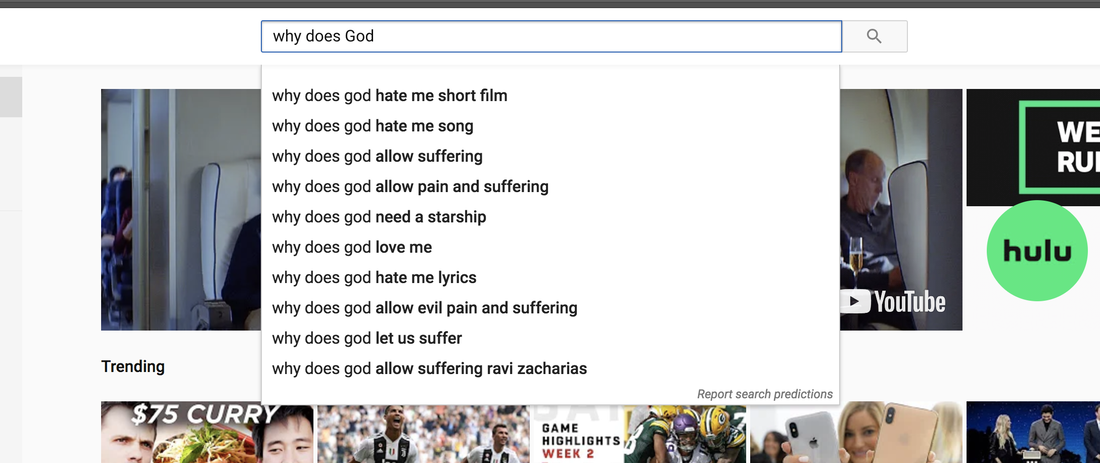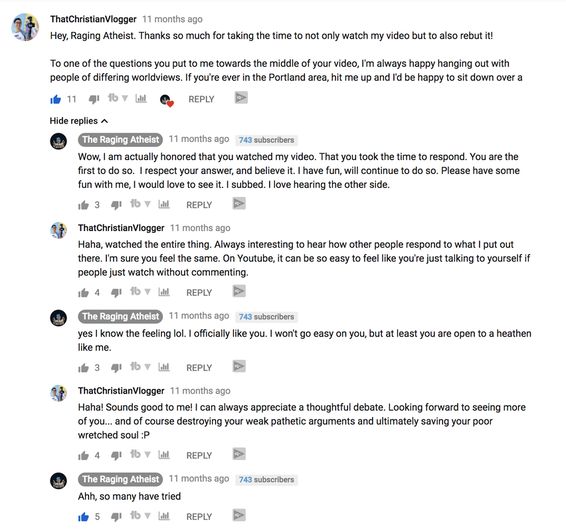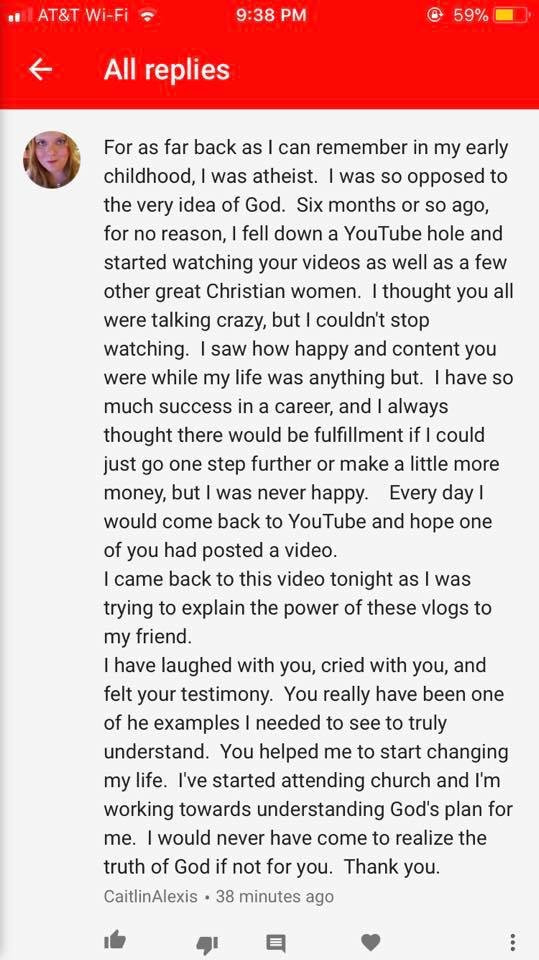Justin KhoeDigital Missionary, That Christian Vlogger. When it comes to reaching millennials, social media is a necessity, not a luxury. With only 2 in 10 millennials considering regular church attendance important, it just makes sense to meet young people where they are, and in 2018, that’s online. Millennials spend on average 18+ hours per day behind a screen consuming movies, podcasts, social media, and playing video games. If you think that’s crazy, consider this: when I shared this statistic at Andrew’s University, over 50% of the seminarians I asked said that this was an accurate representation of their day. As a church, our first response has been to point out the inherent dangers in online media, and rightfully so. However, if we have any desire to reach the unchurched or those who have left the faith, running away from social media is no longer an option. As Eleanor Roosevelt famously said, “It’s better to light a candle than to curse the darkness.” Rather than running away from social media, I believe God is calling us to run toward it, not as mindless consumers and gullible sheep, but as digital missionaries. The digital missionary recognizes that “…Everyone who calls on the name of the Lord will be saved” (Romans 10:13, NIV). But as Paul said, “How then will they call on him in whom they have not believed? And how are they to believe in him of whom they have never heard? And how are they to hear without someone preaching? And how are they to preach unless they are sent?” (Romans 10:14-15, ESV). The digital missionary is a faithful Christian who is committed to taking the gospel to the world, whether that means selling books door-to-door, hopping on a plane to a third-world country, sharing their testimony on Sabbath afternoon, or creating videos on YouTube. So here are 5 of the most important tips that I’ve learned in my three years as a digital missionary: Tip 1: Assume no one will ever come to your church. When most begin thinking about digital evangelism, one of the first questions is, “How do we get them to come to church?” Respectfully, I think this is the wrong question to ask. After all, the mission given to us by Jesus was to make disciples, not to grow our local church. Stop treating Facebook or Instagram simply as advertising platforms for weekend services or midweek socials. Instead, ask yourself this: If the only teaching or discipling that my viewer receives comes from my online ministry, how would their walk with God look? Would their love for Jesus be increased? Would they be challenged? Would their faith grow? By taking the “disinterested benevolence” approach, always serving and never expecting, God will place us directly in the path of those who need it most. Sometimes that means our ministry will reach the shut-ins and disabled, the persecuted Christian living in a Muslim country (true story), or someone like Brook. Paradoxically, by making this assumption, people do show up at church. In fact, this past month Helen dragged her husband and all four of her kids to church when she found out that I would be speaking at a local Adventist church only 2.5 hours away. She may not be baptized yet, but as someone who has been convinced of the seventh-day Sabbath, Helen is doing the hard work of wrestling through these difficult questions. Thankfully, she doesn’t have to do this on her own. Tip 2: Numbers matter, but not in the way that you think. As a digital missionary it’s easy to believe two lies when it comes to “numbers.” On the one hand it’s easy to get proud when a video “goes viral” and the subscribers start rolling in. Conversely, it’s easy to get discouraged and think it’s not worth the effort when only a dozen people watch a video that took you five or six hours to create. In the same way that God values the small local church of a dozen members and the mega church with tens or hundreds of thousands of members equally, the same is true for the online video. It doesn’t matter if your video gets millions of views or dozens; God values it the same. After all, what matters to God most is the impact on the individual. It can be so easy to forget this simple fact, leading us to start interpreting views as a simple metric instead of what it really represents: actual real-life human beings who have taken the time to watch your content. No Bible worker would for a moment feel ashamed when only a dozen people showed up to their Bible study. No pastor would ever consider the many hours in sermon prep a waste if he only got to preach to 50 or 100 people. The same should be true for digital missionaries. Why? Because each view isn’t actually a view. It’s a person Tip 3: Teach what your viewers are looking for, not what you’re interested in. One of the most overlooked facts about YouTube is that it is the second largest search engine in the world. In fact, every month, YouTube sees over 3 billion searches! “How-to” videos are growing 70% each year. We know this intuitively. After all, what do we do when we need to learn how to change a tire? We YouTube it! Need to learn how to tie a tie? YouTube it! Trying to learn how to install a piece of software on our computer…YouTube it! The same is true for spiritual questions. Over 100,000 people every single month are searching for answers to questions like, “Is God Real?” “What happens after death?” “What is Faith?” and even…“What is a Seventh Day Adventist?” Instead of uploading an hour-long debate on who the King of the North is from Daniel 11, try targeting what people are actively searching for. Here’s a pro-tip on how to discover what people are looking for online. Open up YouTube on an “incognito tab” on Chrome (if you don’t know how to do this, ask a 13-year-old in your church). By doing this, you won’t allow your personal search history to influence the auto-complete in the search bar. Start typing phrases like, “What does the Bible…” “Does God…” and “Why does God?” Pay close attention to what shows up. YouTube is telling you that these are the most commonly typed questions by YouTube viewers from all across the world! This is where you should start when creating online content. P.S. Use free tools like VID IQ, Google Ad Words, or Tube Buddy to get more in-depth information on specific questions many people are searching for. Tip 4: Remember, community matters most! Most of your viewers will be casual viewers: those who watch one or two videos only to wander to some other part of the internet. Don’t be discouraged by this. Jesus mentioned that there would be different soils each time we try to plant seed. Don’t be easily discouraged when it seems like your audience is highly transient in nature. If you are consistent in creating quality content, never “grow weary of doing good.” The promise is that, “in due season we will reap, if we do not give up” (Galatians 6:9, ESV). Building deep community takes time. This is true of digital missions and IRL (in real life) ministry. People may visit your church dozens of times before they truly engage with the community and get involved through service. When I first started my online ministry, I asked myself how I would define “success” if I were planting a church. After 12 months, would an engaged community of 50 people be success? 100? 1000? Apply this same long-term mentality to building an online community. Don’t get impatient. Other than creating consistent, quality content, there are many more things that you can do to build community. Respond to every single comment. Yes, all of them. Every comment is an opportunity to build community. Think of every comment as a real interaction (because that’s what it is). How would you respond if someone had something complimentary or critical to say to you after church? What would you do when a visitor had a question to ask the pastoral team? Respond to every single comment. Even the haters. Some of the most meaningful interactions that I have had online actually have come from people who were initially, “haters.” When fellow YouTuber, “The Raging Atheist,” made a very colorfully worded and angry video focused on attacking my channel (http://bit.ly/2NVbTrU - sensitive ears beware), instead of getting defensive, I tried to reach out. Two more VERY colorful videos and several months later, “The Raging Atheist” not only considers me a friend but is actively encouraging his atheist subscribers to go and subscribe to my channel. To hear the full story, check out the Restore podcast by Javier Diaz. Make it a practice to reach out to your viewers. Connect with them on other social media platforms like Facebook, Instagram, and Twitter. Ask them questions. Offer to video chat or call them when they have questions. Respond to every email as if they were a person knocking on your church door, and over time you will build a deep and meaningful community. Tip 5: Prayer is not enough. Educate yourself and collaborate with others. Don’t get me wrong. Prayer is not only important, it is necessary. Any success that we will have in ministry, digital or otherwise comes as a direct response to prayer. But a digital missionary must combine it with an active effort to be informed and competent. Social media platforms change about as often as Apple releases new iPhones. As such, it’s important to continually invest in education and mentorship. I’m writing this case study having just gotten back from Las Vegas. No, I wasn’t trying to make it big at the casinos. Instead, I had just invested three days with some of the industry’s leading experts on social media marketing. Side note: many of the most proficient experts in social media are fellow believers seizing the power of social media for kingdom growth! Over the last three years, I have spent over $10,000 on online courses, coaching, books, conferences, and mentorship. Now, I realize that not everyone is in the position to invest this type of money, but there are so many free resources available to help equip you with the knowledge and tools you need to succeed as a digital missionary (thanks to the NAD for partnering with me to create a FREE course on how to start a video ministry. Perhaps one of the most beautiful things about digital missions is that social media actually rewards collaboration instead of competition. Whether you are looking to launch a YouTube channel, podcast, blog, or Instagram account, there is much to be gained from partnering with like-mission-minded people. Connect with other digital missionaries. Learn from their experiences, both the successes and failures. Seek to bolster and support their efforts with the heart of a servant. Here are some examples of fellow Adventist missionaries & resources: https://www.facebook.com/humansofadventism/ http://www.gorgeous2god.org/ https://www.stuffadventistsshouldknow.org/ https://www.facebook.com/burnthehaystack/ https://www.centerforonlineevangelism.org/ https://thestorychurchproject.com/ https://www.theabsurdity.org/podcast/ http://adventisthistorypodcast.org/ https://www.ibelievebible.com/ Part 2: P.S., if you’re still doubtful that digital mission work really makes a difference, this is Michael Troyonasky. He became a Seventh-day Adventist because of a YouTube video. Yes, it makes a difference.
Catherine Carpenter
1/18/2019 06:06:37 am
Thank you for posting this valuable information which I found in the NAD letter this morning.
Thurman C. Petty, Jr.
1/18/2019 08:59:17 am
I'm a 78 yr old retired minister who's looking for a mission. I've been passing out books from door to door, but am just having trouble getting around lately. Your mission on youtube gives me the idea that I can still be of service at a thing I'm used to. I'd really like to know more.
Jamie Domm
1/28/2019 10:50:26 am
Hello Thurman, 1/18/2019 03:09:58 pm
Thank you for a great crash course on media mission! My favorite take-away was-"Instead of uploading an hour-long debate on who the King of the North is from Daniel 11, try targeting what people are actively searching for". YES, no beats of kings only practical stuff!!!!! This reminded me of EGW's definition on the Bible: Selected Messages Vol. 1, p.20.2 "The Bible was given for practical purposes".
Jamie Domm
1/28/2019 10:51:23 am
So happy this post spoke to you! Check out our full (free) course on starting a video ministry: https://www.sdadata.org/10commandmentsofdigitalmissions.html
George
10/27/2020 03:34:27 am
This really helped me in finding the right mode in reaching out to the lost.Thanks. Comments are closed.
|
Archives
August 2020
Categories
All
|
- Home
- BLOG
-
RESOURCES
-
RESOURCE MENU
>
- ADVENTIST IDENTITY GUIDELINES
- BIG DATA RESOURCES
- BRANDING, IMAGE & DESIGN RESOURCES
- CHURCH/MINISTRY SPECIFIC RESOURCES
- COPYRIGHT & TRADEMARK BASICS
- COURSES
- EMAIL RESOURCES
- GUIDANCE FOR HIRING SOCIAL MEDIA POSITIONS
- PODCASTS
- REPORTS & CASE STUDIES
- SOCIAL MEDIA RESOURCES
- (SOCIAL) VIDEO RESOURCES >
- TEXTING 4 CHURCHES
- TRACKING & ANALTYICS
- WATCH VIDEOS & TUTORIALS
- WEBSITE TIPS
- SOCIAL MEDIA GUIDELINES
-
RESOURCE MENU
>
- SEO
- Digital Discipleship & Evangelism
- COVID-19 RESOURCES
- eNEWSLETTER












 RSS Feed
RSS Feed